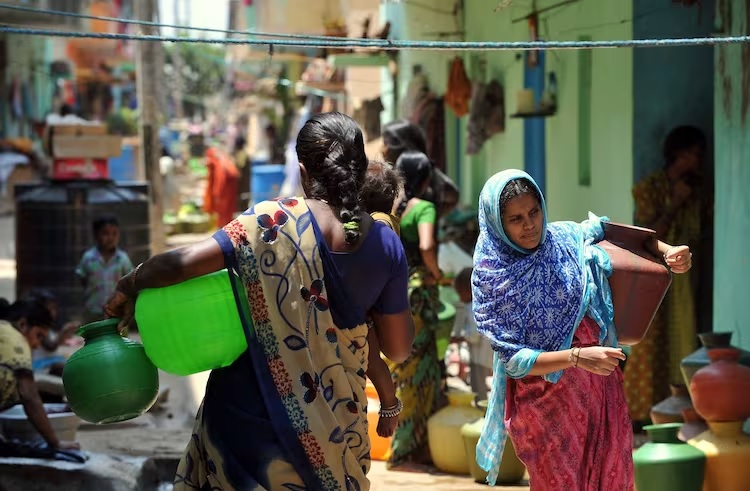The multifaceted crisis of drying borewells in Bengaluru, is a challenge impacting diverse communities across the city.
Deepening Water Crisis
The severity and scope of this issue are vast. In areas like Kalkere, Ramagondanahalli, and newly incorporated villages in Bengaluru, drying borewells have become a daily struggle. These peripheral areas lack piped water infrastructure, heavily relying on borewells for essential needs like drinking and sanitation.
Residents face immense challenges, from water scarcity disrupting daily life to the financial burden of relying on expensive private water tankers. In these areas of Bengaluru, the costs can soar up to Rs.10,000 per month, straining household budgets and posing health risks due to the lack of clean water.
Extraction, Neglect & Illegal Drilling
The root causes of this crisis are complex. Unsustainable groundwater extraction, exacerbated by inadequate rainfall and urbanization, has depleted groundwater levels faster than natural replenishment in Bengaluru. Poor water management, including leaks and inefficiencies, further exacerbates the situation.
Governance challenges such as illegal borewell drilling and lack of enforcement of water conservation regulations add to the complexity.
The Worst Affected Areas
Take Kalkere, where two out of three borewells have dried up, leaving residents without water for weeks. Or Ramagondanahalli, where exorbitant prices for tanker water highlight the financial strain on residents. Newly incorporated Bruhat Bengaluru Mahanagara Palike (BBMP) villages suffer from the lack of piped water infrastructure, leaving them vulnerable during scarcity.
Conserve, Replenish, Regulate
Addressing this crisis requires a multi-pronged approach. Water conservation measures, including rainwater harvesting and greywater reuse, can help reduce demand and conserve water. Groundwater recharge through initiatives like lake rejuvenation is crucial for replenishing depleted reserves in Bengaluru.
Investing in improved infrastructure, regulating borewell drilling, and promoting responsible water use are essential steps. Community-based initiatives can raise awareness and hold authorities accountable.
In conclusion, the drying borewells in Bengaluru underscore the city’s water crisis, especially with summer approaching. By implementing sustainable solutions, investing in infrastructure, and fostering community involvement, Bengaluru can overcome this challenge and ensure equitable access to water for all its residents. Know More About the City

